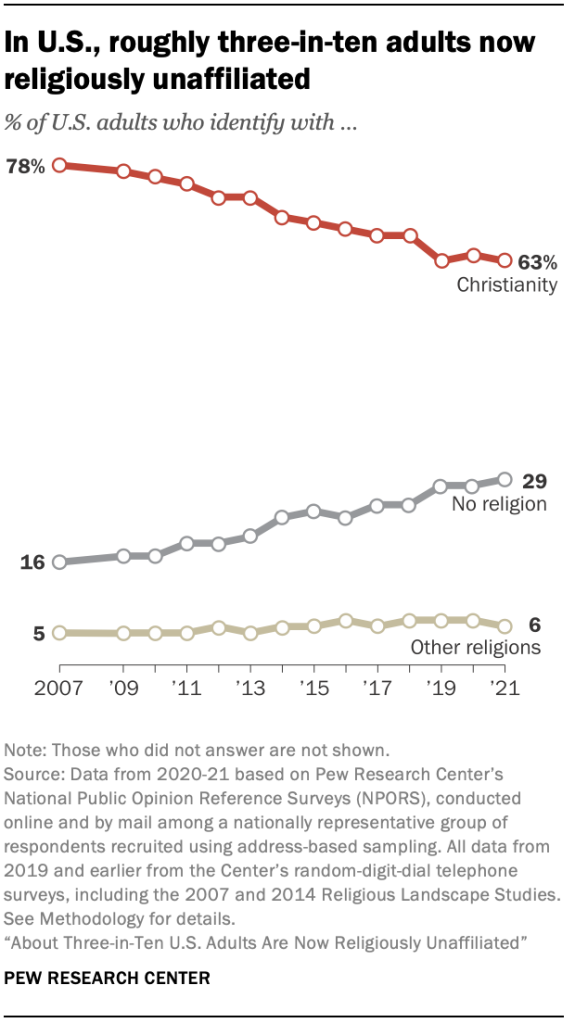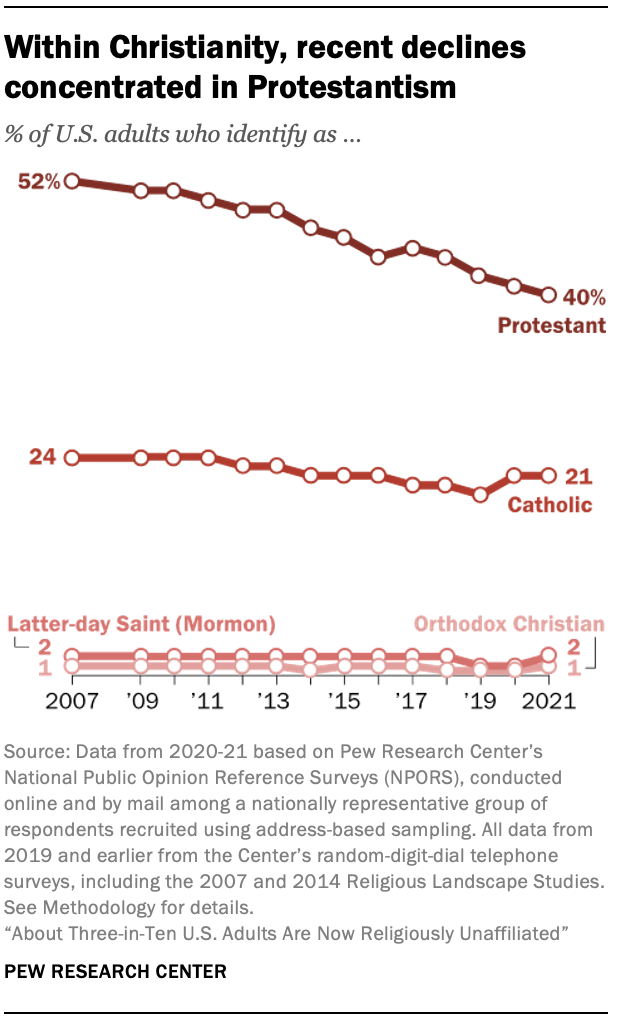
The annual National Public Opinion Reference Survey (NPORS) of the Pew Research Center said around three out of ten US adults now consider themselves unaffiliated to any religion. First conducted in 2020, NPORS is an annual survey conducted online and via mail using a nationally representative group of respondents.
NPORS was administered for approximately three months this year, from May 29 to August 25. The survey’s total respondents were 3,937 US adults, with 2,387 respondents completing the questionnaires via mail.
According to the survey, adults who identify as Christians were at 75% more than ten years ago. Now, the number has significantly dropped to 63%. A staggering 13% fell in just a decade. The religiously unaffiliated adults are now at 29%. This number was six percent higher five years ago and ten percent higher than ten years ago.
Gregory Smith, the Associate Director of Research for the Pew Research Center that “secularizing shifts evident in American society so far in the 21st century shows no signs of slowing.”
A similar annual survey conducted by Gallup reflects the secularizing shift described by Smith. According to Gallup, church membership started declining by the turn of the 21st Century. Before 2000, church membership was consistently above 70%; by 2020, it went down to 47%.
According to Pew’s latest survey, three out of ten adults do not associate themselves with any organized religion. These “nones” consist of individuals who describe themselves as atheists, agnostics, or “nothing in particular.” Adults who identify with a religious organization are composed mainly of Protestants, Catholics, Mormons, and Orthodox Christians. The current ratio, according to Pew, is more than two-to-one. More than a decade ago, the ratio between self-identified Christians to the religious “nones” was five-to-one.
The decline in religious affiliation was concentrated among Protestants, a group that includes Baptists, Methodists, Lutherans, Presbyterians, and those who label themselves as “just Christians.” The number of adults who identify as Protestants dropped by four percent in the past five years and ten percent over the last decade.
In comparison, the share of adults who identify as Catholics and Mormons did not drastically change. Catholic adult shares changed only by three percent (24% to 21%) from 2007 to 2021. At the same time, Mormon adult shares remained steady at two percent.
David Campbell, a professor at the University of Notre Dame who also wrote about secularization in America, said the decline in religious identity “is at least in part a reaction to the political environment.” “Many people turning away from religion do so because they think of religion as an expression of political conservatism or as a wing of the Republican Party,” Campbell added.


